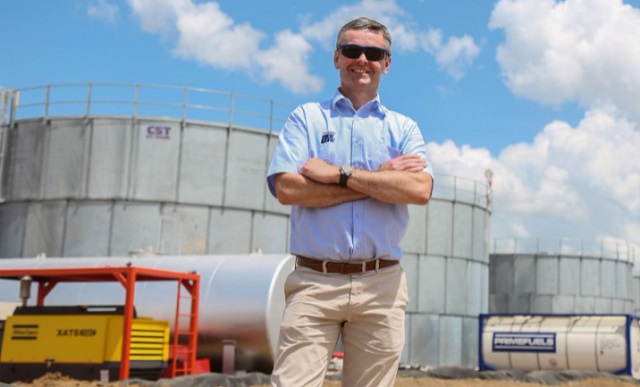
Some governments need to pick up the pace on signing off on upstream projects in order to attract capital, Tullow boss says
| THE INDEPENDENT | African countries risk losing out to other markets in the race for global upstream investment capital due to slow decision making by some governments as well as better fiscal and contract terms elsewhere.
“We need to reduce the barriers to investment, not add to them – and I think this is something that is still a work in progress,” Tullow Oil chief executive Paul McDade said on the opening day of the Africa Oil Week conference in Cape Town on Nov.05.
“We need faster, more efficient decision making to allow us to get on and attract capital, and then invest that capital,” he said.
“What we have … seen is where we don’t get those decisions made, the value erosion that can occur and the loss of potential and positive impact on both the country and the communities.”
Although McDade did not identify Uganda, his comments are likely to be taken as referring to the administration in Kampala. Tullow has recently seen its planned $900 million farmdown in the country to Total and CNOOC International fall through as the trio remain at an impasse over their proposed Lake Albert oilfield development.
A final investment decision on the Tilenga and Kingfisher oilfields – which will be developed together – remains elusive, with lead operators Total and CNOOC recently halting all work on the development.
Tullow has also appealed a Ksh5.2 billion ($50.2) tax demand from the Kenya Revenue Authority for its transfer of 25% of its interests in 2015 and a further 10 per cent in 2018 both in Block 12 A in South Lokichar Basin to the UK-based Delonex Energy.
“We have seen in different parts of Africa that if governments do move fast, then we can move forward,” McDade added of projects elsewhere on the continent in its portfolio.
“We are working very hard in Kenya at the moment trying to move the onshore project forward, and we have seen that flexibility from the Kenyan government.”
Although the South Lokichar development in Kenya is progressing, it is also moving slowly, with a final investment decision slipping in July from before the end of this year until the second half of 2020.
While McDade also said that the perception of poor industry regulation, taxation and capacity in African countries is outdated, the continent also risks being overtaken by other markets in the race for upstream players’ capital.
“We are always out there telling people (Africa) is a great and sound place to invest and that we do get good contract and fiscal stability where we are working,” he said.
“But we do have some exposure to other regions and often we are seeing a faster response to this changing global market, especially in the exploration bid rounds.”
Tullow has acreage in the significant hotspot of Guyana, where this year it unearthed two oil discoveries – Jethro and Joe – on its Orinduik block. It also has blocks off Peru, which are slowly being reallocated to the company after the government reexamined the terms of the deals agreed with the previous administration. Both Guyana and Peru offer attractive fiscal terms to companies entering its offshore sector.
The company recently picked up a trio of blocks in Argentina, all as operator, and one on 100%.
“We are seeing more attractive fiscal terms elsewhere and I think that is something we need to continue to look at so that we do continue to attract exploration capital to Africa,” McDade continued.
Despite raising potential red flags on investment in some African countries, McDade said Tullow “remains absolutely committed to Africa”.
“We see so much potential in the region and we will be here for many, many years to come,” he said.
****
Source: Upstream online
 The Independent Uganda: You get the Truth we Pay the Price
The Independent Uganda: You get the Truth we Pay the Price


